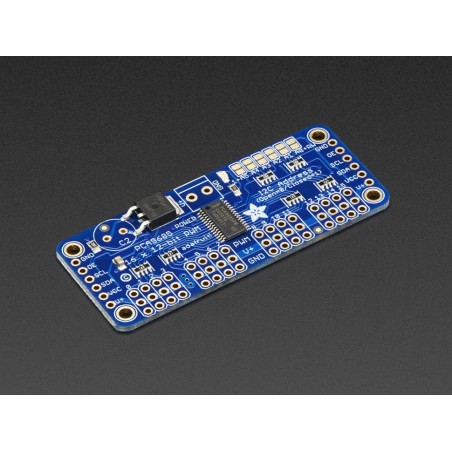







You want to make a cool robot, maybe a hexapod walker, or maybe just a piece of art with a lot of moving parts. Or maybe you want to drive a lot of LEDs with precise PWM output. Then you realize that your microcontroller has a limited number of PWM outputs! What now? You could give up OR you could just get this handy PWM and Servo driver breakout.
When we saw this chip, we quickly realized what an excellent add-on this would be. Using only two pins, control 16 free-running PWM outputs! You can even chain up 62 breakouts to control up to 992 PWM outputs (which we would really like to see since it would be glorious)
We wrapped up this lovely chip into a breakout board with a couple nice extras
This product comes with a fully tested and assembled breakout as well as 4 pieces of 3x4 male straight header (for servo/LED plugs), a 2-pin terminal block (for power) and a piece of 6-pin 0.1" header (to plug into a breadboard). A little light soldering will be required to assemble and customize the board by attaching the desired headers but it is a 15 minute task that even a beginner can do. If you want to use right-angle 3x4 headers, we also carry a 4 pack in the shop.
Check out our tutorial with Arduino and you can get our documented Arduino library which has both PWM and Servo examples from github!
Specifications:
Datasheets, EagleCAD PCB files, Fritzing object and more in the tutorial!
Revision History:

